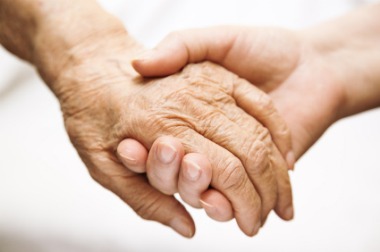Every Wednesday, a platter of sandwiches is delivered to the Irish Immigration Center in Upper Darby for the weekly seniors lunch. Then, the regulars arrive, many of them men and women who emigrated to the United States in the ‘50s, ‘60s, and ‘70s, spending most of their lives separated by a vast sea from family and old friends. They’ve raised new families here and they’ve become old friends, but the weekly lunches are an opportunity to hear Irish voices again, to share memories, and make new ones.
When lunch is over, some of the seniors wrap up the leftovers and, on their way home, visit other seniors, those who are isolated by illness, disability, or lack of transportation.
And it’s those people–the ones who don’t come–that motivated the center’s board to approve the hiring of an Irish social worker who’ll be able to regularly visit homebound immigrants to offer them support and the familiar lilt of home.
“The people we see all the time are the healthiest and in the best shape,” says Immigration Center Executive Director Siobhan Lyons. “We would love to do more for the seniors who come here—but, of more importance—the ones who can’t come here.”
At the end of November, Leslie Alcock, a native of Carlow with a master of social science from University College of Dublin, will join the staff at the immigration center. Her first job, says Lyons—assess the needs of the community’s seniors. Alcock, who has wide experience with various communities, from prisoners to families, will be providing services to all ages, but the impetus for bringing her on is to make sure that Philadelphia’s elderly Irish immigrants don’t experience the same fate as others around the world.
“One of our regular lunch people, Attracta O’Malley, sent me a news story about an old Irish immigrant in New Zealand who died and whose body wasn’t found for a year,” says Lyons. “Just a couple of years ago there was a famous case in New York that served as the inspiration for a survey of Irish senior citizens in New York.”
In 2009, the headlines in New York newspapers blared, “He died alone.” He was 72-year-old Tony Gallagher, a retired carpenter from Mayo whose wife, who has Alzheimer’s, was in a nursing home. The two had no children. Gallagher was found dead in his Queens apartment about a week after he died of natural causes.
Ireland’s unique Immigrant Support Programme, which funds immigration centers around the world, was created in reaction to stories of increasingly isolated immigrants, mainly in England, who hadn’t become educated, married, saved, or assimilated into the culture—essentially becoming ghettoized.
“The inspiration for a lot of these senior programs are the experiences of the London Irish, who emigrated in the ‘50s, sent money home, didn’t assimilate into the English culture, didn’t get married or have families, and by the time they were in their ‘60s they didn’t have a support system,” says Lyons. “Our seniors are better adjusted and assimilated and certainly wealthier than the London Irish, but when a spouse dies they get isolated. Some of them are living in a neighborhood that used to be Irish but is now not a neighborhood they necessarily feel part of. Some have less confidence in their physical abilities and are wary of going out.”
Kathleen Murtagh, one of the center’s Wednesday “lunch ladies,” knows some of those people. A widow and mother of six, she regularly takes them leftovers, visits the homebound, and calls those she hasn’t seen in a while. “We try to keep track of people we know,” she says. “We’re always looking out and reaching out. If there’s someone you normally see and you don’t see them, you check on them. But there are people we don’t know and I think having a social worker who could find them, call or knock on their door, would really help.”
The inspiration for hiring a social worker from Ireland came from Chicago, says Lyons, where an organization called Wellspring Personal Care joined forces with the Chicago Irish Immigrant Support Center to bring Irish social work students to the US as interns to serve the elderly Irish population. Alcock is a graduate of that program.
“I’m familiar with what they’re doing in Chicago and they’re a few years ahead of us in their program, but they’re the model for what we’re doing,” says Lyons.
The Irish government is impressed too. It has funded “The Chicago Irish Project” and encouraged other immigration centers to replicate the design, which also gives field training to Irish social workers whom it hopes will bring their knowledge of senior care back to Ireland.
“I love the idea that we could set up an exchange program between schools in Ireland and schools with great social work programs here, like Bryn Mawr and Temple with Trinity maybe,” says Lyons. “That’s our long-term strategic plan, but right now the first step is for Leslie to sit down the seniors here and start making a list of all the seniors we’re not reaching and for her to go out and see what their needs are. That way we can build up a database of who is out there who needs help and what they need.”
Eventually, says Lyons, she’d like to establish a volunteer program of younger people who would do home visits, run errands, and do small chores like lawn mowing and snow shoveling that the elderly now have to pay for—a financial hardship when you’re on a fixed income. “It will be nice to see the next generation of the Irish community helping our seniors,” says Lyons. “We want people to know they’re cared about.”
You can help Philadelphia’s “Irish Project” by attending a fundraiser on Sunday, November 6, from 3-6 PM at Finnigan’s Wake, 3rd and Spring Garden Streets in Philadelphia. The $40 per person ticket covers a buffet and open bar and live music with the popular Bogside Rogues. For more information, contact Siobhan Lyons, 610-789-6355.

